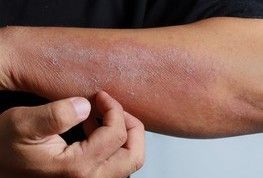News
Article
FDA Expands Dosing Label for Avacincaptad Pegol for Geographic Atrophy
Author(s):
Key Takeaways
- Avacincaptad pegol's expanded label allows dosing beyond 12 months for geographic atrophy, following FDA approval based on 2-year GATHER2 trial data.
- Geographic atrophy, a form of age-related macular degeneration, involves atrophic lesions and vision loss, with nearly 1 million cases in the US.
The FDA approved an expanded label for avacincaptad pegol, removing limitations on the duration of dosing beyond 12 months.
Credit: US Food and Drug Administration

The US Food and Drug Administration (FDA) has approved the expanded label for avacincaptad pegol intravitreal solution (IZERVAY) for the treatment of geographic atrophy (GA), extending the approved dosing beyond 12 months.1
Announced by Astellas Pharma, on February 13, 2025, the decision comes after the company resubmitted its supplemental New Drug Application (nDA) in December 2024, based on feedback received from the FDA after an initial Complete Response Letter (CRL) the month prior.2,3
“This is a welcome update for retina specialists, providing continued management options for treatment of this chronic, progressive disease that can lead to irreversible vision loss,” Veeral Sheth, MD, MBA, partner and director of clinical trials at University Retina, and an HCPLive Advisory Board member, said in a statement.1
An advanced form of age-related macular degeneration (AMD), GA is characterized by atrophic lesions that can expand and lead to irreversible vision loss. Its complex pathophysiology is believed to involve inflammation due to overactivation of the complement system, leading to loss of photoreceptors, retinal pigment epithelium (RPE), and the underlying choriocapillaris. Nearly 1 million cases are reported in the US, with close to 160,000 cases occurring each year.4
Targeting the complement 5 (C5) pathway, the FDA first approved avacincaptad pegol in August 2023 for treating GA secondary to AMD. Its approval was awarded on pivotal data from the GATHER1 and GATHER 2 clinical trials showing a significant reduction in the mean growth rate of GA area in patients at 12 months.5
This approved label update was based on 2-year results from the Phase 3 GATHER2 trial, in which avacincaptad pegol continued to reduce the rate of GA lesion growth for both every month (–14%; P = .0165) and every other month (–19%; P = .0015) dosing versus sham.1 Treatment benefits were identified as early as 6 months, increased across the 2 years of study, and marked a more than double improvement compared with 1 year.
Safety updates at 2 years showed avacincaptad pegol remained well-tolerated in GATHER2. It showed a single case of non-serious intraocular inflammation and culture-positive endophthalmitis, but no ischemic neuropathy or serious IOI, including retinal vasculitis. The incidence of choroidal neovascularization was elevated with avacincaptad pegol (11.6%) versus sham (9%).
Astellas Pharma reported month-over-month growth in the US since receiving a permanent J-code in April 2024, with more than 143,000 vials distributed by the end of September 2024. With this approval removing the limitation on dosing duration, the company indicated physicians and patients have greater flexibility when managing their disease.
“We are pleased with the FDA’s decision to extend the use of IZERVAY for longer-term administration—further solidifying IZERVAY’s status as a trusted choice for thousands of GA patients since its launch in 2023,” Marci English, senior vice president of biopharma and ophthalmology development at Astellas Pharma, said in a statement. “To date, IZERVAY remains the only FDA-approved treatment to demonstrate a statistically significant slowing of GA across two pivotal trials.”
References
U.S. FDA approves expanded label for Astellas’ IZERVAYTM (avacincaptad Pegol Intravitreal Solution) for geographic atrophy. News | Astellas Pharma Inc. February 13, 2025. Accessed February 13, 2025. https://www.astellas.com/en/news/29641.
Iapoce C. FDA accepts revised Avacincaptad Pegol sNDA for geographic atrophy. HCP Live. January 9, 2025. Accessed February 13, 2025. https://www.hcplive.com/view/fda-accepts-revised-avacincaptad-pegol-snda-for-geographic-atrophy.
Iapoce C. FDA issues CRL to Avacincaptad Pegol sNDA for geographic atrophy. HCP Live. November 22, 2024. Accessed February 13, 2025. https://www.hcplive.com/view/fda-issues-crl-to-avacincaptad-pegol-snda-for-geographic-atrophy.
Bakri SJ, Bektas M, Sharp D, Luo R, Sarda SP, Khan S. Geographic atrophy: Mechanism of disease, pathophysiology, and role of the complement system. J Manag Care Spec Pharm. 2023;29(5-a Suppl):S2-S11. doi:10.18553/jmcp.2023.29.5-a.s2
Kunzmann K. FDA approves Avacincaptad Pegol for geographic atrophy. HCP Live. August 5, 2023. Accessed February 13, 2025. https://www.hcplive.com/view/fda-approves-avacincaptad-pegol-geographic-atrophy.




